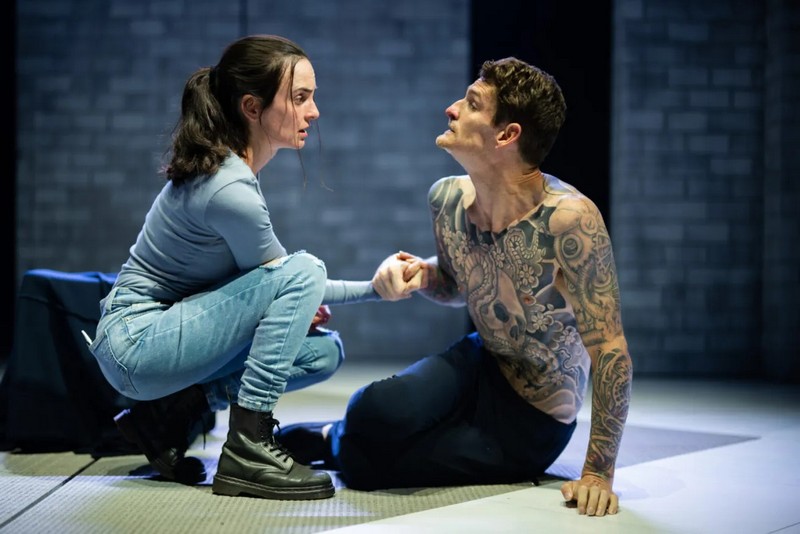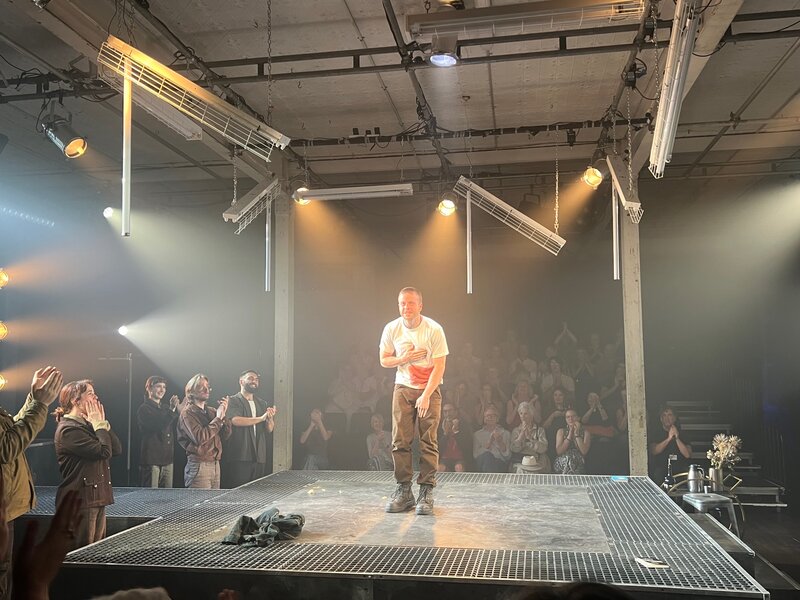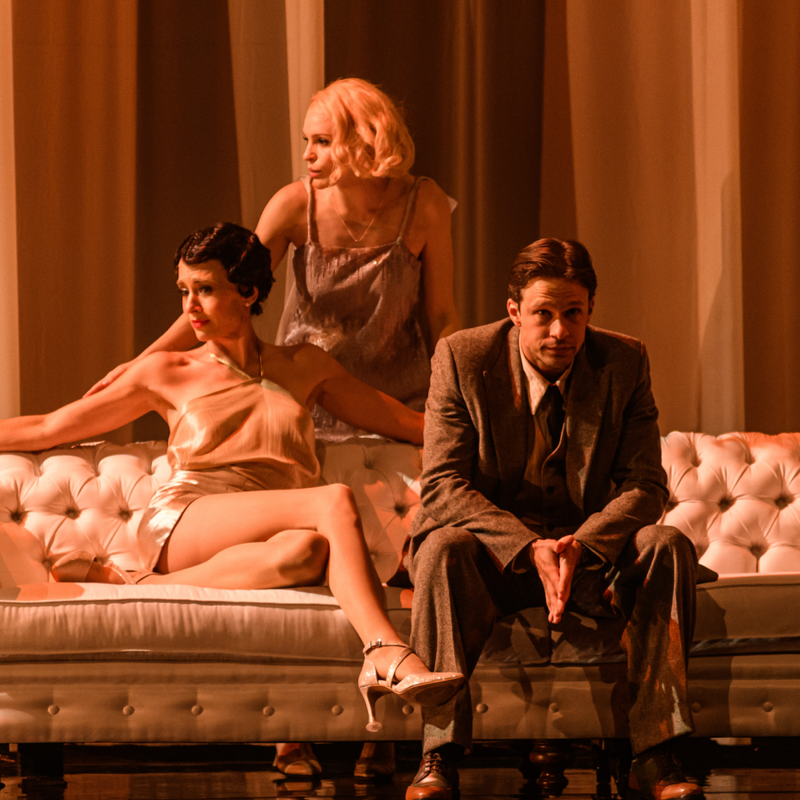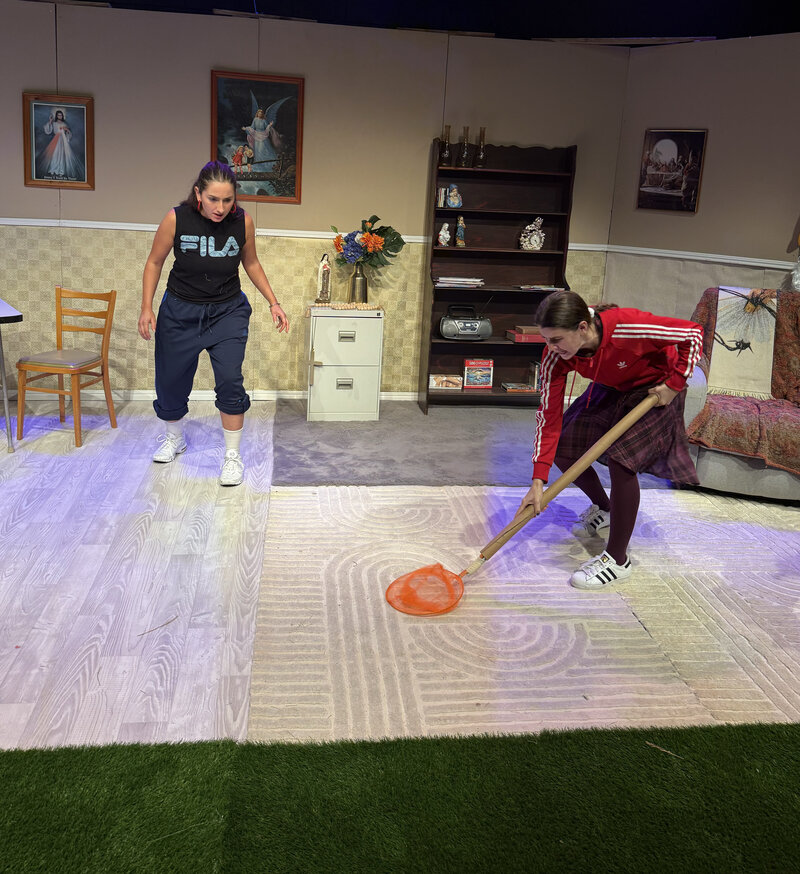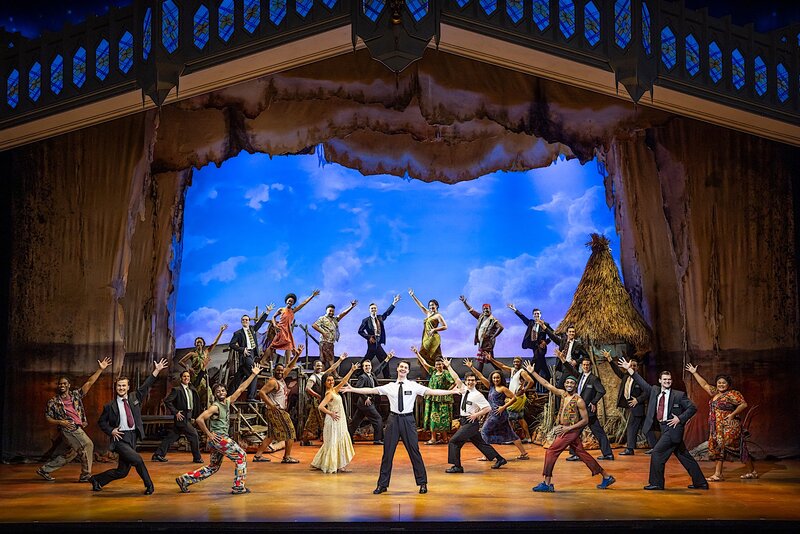Queensland Theatre’s Cost of Living comes with a number of audience warnings, including as to its occasional strong language and nudity. It is not, however, a confronting work, so much as an honest and tender balance of heart and humour. Indeed, the Australian premiere of Polish-American playwright Martyna Majok’s seemingly unassuming play, is, through Priscilla Jackman and Dan Daw’s sensitive co-direction, nuanced and layered in its exploration of the complexities of connection and care-giving.

The story, which is not told chronologically, is of two unrelated relationships of different lengths, presented through alternating vignette-like scenes. Estranged older partners Eddie (three-time Laurence Olivier Award-winner Philip Quast AM in his swansong performance) and his feisty quadriplegic ex-wife Ani (Kate Hood) are learning to live with Ani’s acquired disability. Meanwhile young and wealthy Princeton Ph.D student John (co-director Daw) is living with cerebral palsy, with assistance from his newly employed carer, young migrant woman Jess (Zoe de Plevitz). Through Jackman and Daw’s considered co-direction, we are shown rather than told of the basic human needs that fuel their resilience, ensuring that, for example, Ani and John’s character definitions come from more than just their disabilities, or at the expense of more privileged characters.
We are not shown stereotypes or presented with a romanticised view of characters and events. Rather, all of the story’s players are presented as essentially flawed characters in some way. Indeed, while its broad title is certainly an applicable descriptor, the cost of caring, could also well be apt, given its consideration of the courage and emotional cost of those caring for others suffering from physical disabilities. It is an important element that layers the 90-minute (no interval) work with nuance, as it takes its audience to some expected places on way to what does seem like a somewhat convenient conclusion.
An excellent cast ensures that the characters’ crossroads journeys are clearly articulated. Quast is a charming Eddie from his first highly engaging confessional monologue to share with an unseen stranger story as to how, as an unemployed truck driver, he has found himself, a week before Christmas, in a hip Brooklyn bar waiting to meet the random person he’s been texting. Through his easy and warm conversational style, we are given insight into Eddie’s struggles and determination to move forward from tragedy, which immediately endears us to the character as things then flash back to months earlier, where the bulk of the story unfolds, in chart of Eddie’s reappearance in Ani’s life and the evolution of Jess’s relationship with John from her initial job interview. And just as de Plevitz makes for an empathetic (but guarded) Jess, Hood gives us a proud and sharp-tongued Ani, whose biting comments to and about Eddie, are made all the more acidic by her animated facial expressions. The banter of the divorced couple provides much of the play’s humour in balance with its pathos, however, this also comes through Daw’s portrayal of John, whose wry sense of humour serves to distract from his frustration and desperation.
The play’s episodic structure provides journey through the moments of the characters’ navigations of life together and as individuals while the world continues around them, which is effectively emphasised by Guy Webster’s sophisticated composition and sound design. The soundscape is functional in its additional of narrative elements and also contributes to the pathos, especially in transitions between scenes through a swelling classical music score. Designer Michael Scott-Mitchell’s stage design sees a stylistic, sparse set of sliding walls that are moved into configurations to represents the play’s different spaces, to which a working shower, claw-foot bubble bath and winter snowstorm are added; the latter with effect enhancement by John Rayment’s lighting design.
The Queensland Theatre and Sydney Theatre Company co-production serves as a national milestone as the first mainstage play in Australia to have a 50/50 ratio of disabled and non-disabled actors onstage. It is not only a ground-breaking production, however, but also a powerfully moving one. While its nine scenes may be set over the course of four months in New Jersey, its themes are universal and in its sensitive consideration of them, it is easy to appreciate former-carer Majok’s receipt of the 2018 Pulitzer Prize for Drama for the work. Its location references, weather and dialect (dialect coach Gabrielle Rogers) may ground it in the US North-East, but Cost of Living serves as a compelling reminder of the need for empathy. This is a beautifully rendered, thought-provoking play about the human need of connection and relationships, that uses disability to provide a variation of lens through which to examine them, ultimately serving as a celebration of resilience and love at the heart of all care against loneliness.

